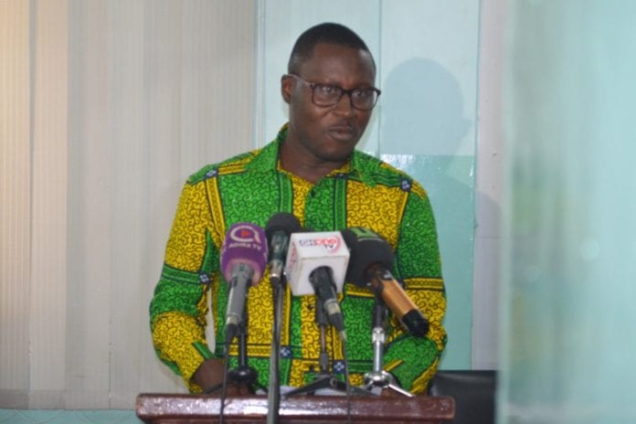A civil society group, SEND Ghana has called on the government to establish a Public Health Emergency Fund (PHEF).
This, SEND Ghana believes when done would “contribute to building a resilient healthcare system to cater to and support investments in health infrastructure, logistics, human resources, risk communication during outbreaks, local manufacturing of vaccines and medicine, and health research.”
The group made this call as the world commemorates International Day of Epidemic Preparedness.
SEND Ghana in a release signed by the Deputy Country Director, Emmanuel Ayifah noted that the call “has become necessary in the wake of the multiple outbreaks of diseases, including the novel coronavirus, Marburg, Monkeypox and other recurring diseases such as meningitis and influenza.”
According to the group, it hopes government heeds the call and take the necessary steps to establish the PHEF before the end of 2023, especially when some Ghanaian citizens are beginning to question the relevance of the COVID-19 levy.
“Failing to plan for disease outbreaks costs more than having a preparedness plan in place. Hence, Ghana must prepare for and respond quickly to potential epidemics rather than waiting to act when outbreaks happen. Not preparing adequately could be dangerous for Ghana and strain an already stressed health system and economy. Preparedness requires a deliberate and concerted effort from the government and all stakeholders,” they added.
According to the group, “Lessons learned from previous outbreaks, including the ongoing COVID-19 pandemic, Monkeypox and Ebola Virus disease show that countries with better preparedness suffer fewer impacts than countries that are unprepared.
“The impacts of disease outbreaks have far-reaching consequences, including setbacks in the Sustainable Development Goals (WHO, 2021).”
SEND Ghana also entreated the government to amend the already existing COVID-I9 National Trust Fund (CNTF) established by an Act of Parliament 2020 (Act 1013) into the PHEF and make revenue from the COVID-I9 Recovery Levy the primary source of funding for the PHEF.
In addition, the CNTF can continue to leverage additional sources of funds such as donations from intuitions, corporate bodies, philanthropists, and patriotic Ghanaians.
Latest Stories
-
CHAN 2024Q: Ghana’s Black Galaxies held by Nigeria in first-leg tie
5 minutes -
Dr Nduom hopeful defunct GN bank will be restored under Mahama administration
39 minutes -
Bridget Bonnie celebrates NDC Victory, champions hope for women and youth
46 minutes -
Shamima Muslim urges youth to lead Ghana’s renewal at 18Plus4NDC anniversary
2 hours -
Akufo-Addo condemns post-election violence, blames NDC
2 hours -
DAMC, Free Food Company, to distribute 10,000 packs of food to street kids
3 hours -
Kwame Boafo Akuffo: Court ruling on re-collation flawed
4 hours -
Samuel Yaw Adusei: The strategist behind NDC’s electoral security in Ashanti region
4 hours -
I’m confident posterity will judge my performance well – Akufo-Addo
4 hours -
Syria’s minorities seek security as country charts new future
4 hours -
Prof. Nana Aba Appiah Amfo re-appointed as Vice-Chancellor of the University of Ghana
5 hours -
German police probe market attack security and warnings
5 hours -
Grief and anger in Magdeburg after Christmas market attack
5 hours -
Baltasar Coin becomes first Ghanaian meme coin to hit DEX Screener at $100K market cap
5 hours -
EC blames re-collation of disputed results on widespread lawlessness by party supporters
6 hours

